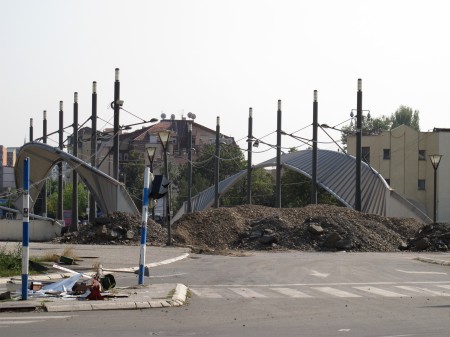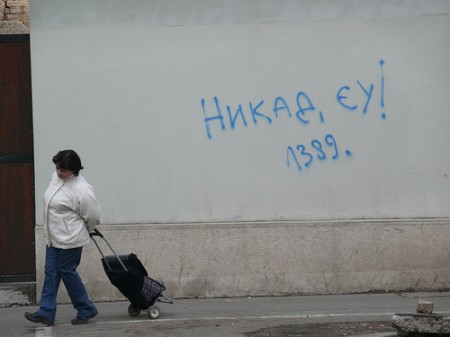
Last week’s outbreak of violence between ethnic Serbs and NATO forces at the border between Kosovo and Serbia may not have been large in scale, but this latest of a number of incidents points toward an escalation of long-simmering tensions in Northern Kosovo. The developments are not just important symbolically; disagreements over the status of the North are the main obstacle to reconciliation between Belgrade and Pristina. They have implications for the wider region and, in effect, keep Serbia out of the EU and Kosovo out of the UN.
The positions are relatively clear-cut:
- Belgrade’s motto is ‘partition, then recognition’: it has made clear that the only way it will accept Kosovo’s independence is if Northern Kosovo becomes a part of Serbia
- Serbs in Northern Kosovo, who make up a large majority of the population, uniformly identify with Serbia and refuse to be part of an independent Kosovo
- For Pristina, partition is unacceptable
- The international community also wants to avoid changes to Kosovo’s borders, for fear of destabilizing the western Balkans and playing into the hands of Kosovo’s nationalists. The EU and the US have consistently insisted that Serbia accept Kosovo’s territorial integrity and work with its government on practical matters

